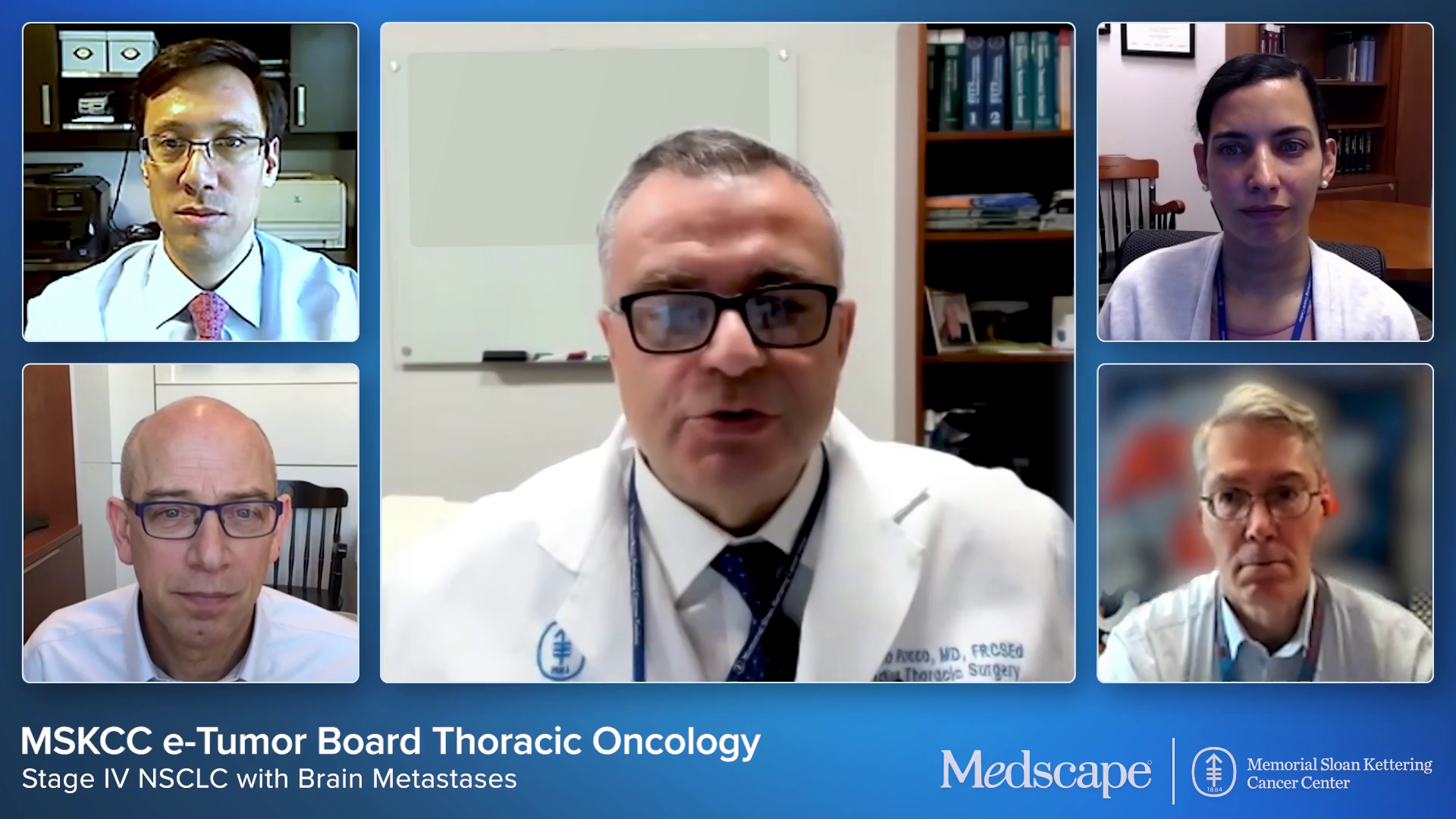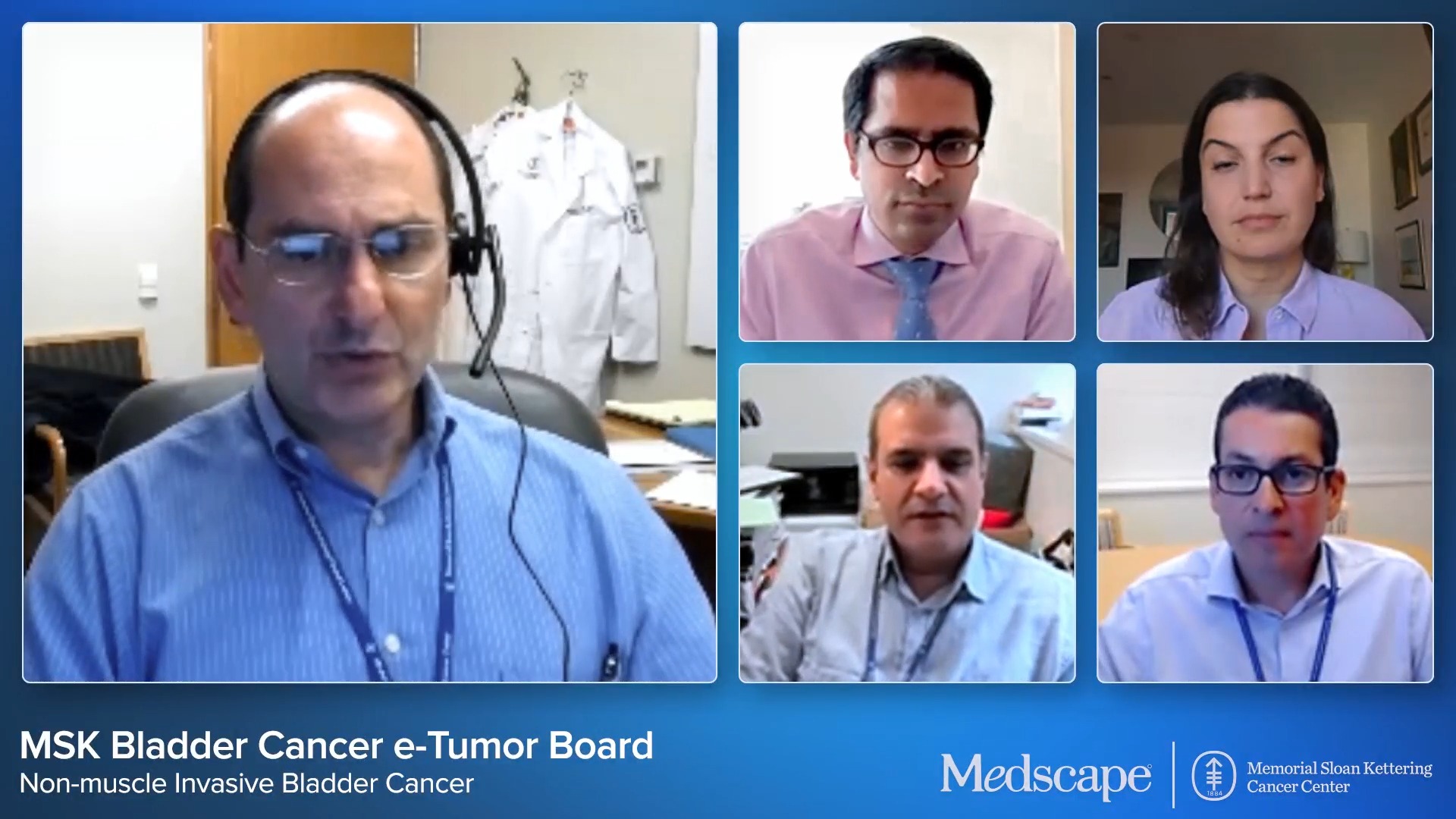The e-Tumor Boards, a video series collaboration between M.D. Alert/Medscape and Memorial Sloan Kettering Cancer Center, gives physicians an inside look into a virtual multidisciplinary tumor board case discussion.

Memorial Sloan Kettering physicians present an e-tumor board, which focuses on an asymptomatic patient who has a rising prostate-specific antigen (PSA) value over an 18-month period. The team discusses clinical trial options and treatment approaches to oligometastatic prostate cancer.

Memorial Sloan Kettering physicians present an e-tumor board, which focuses on a patient, who is otherwise well, but has a prostate-specific antigen (PSA) test at 4.6. About six weeks later, the patients PSA was rechecked, and it was 5.0. The team discusses further testing and how to approach early, low risk prostate cancer.

Memorial Sloan Kettering physicians present an e-tumor board, which focuses on a patient with a prostate-specific antigen (PSA) test of 18.77. The patient was referred to a urologist who performed a digital rectal examination, and there was an area of induration within the left prosthetic apex consistent with clinical stage T2a disease.

Memorial Sloan Kettering physicians present an e-tumor board, which focuses on a patient with stage IV non-small cell lung cancer (NSCLC) with brain metastases. The five-member tumor board team discusses radiology findings, pathology tests, surgery options and management strategies.

Memorial Sloan Kettering physicians present an e-tumor board, which focuses on a patient with spindle cell NSCLC with tumor recurrence. The five-member tumor board team discusses radiology findings, pathology tests, surgery options and management strategies.

Memorial Sloan Kettering physicians present an e-tumor board, which focuses on a patient with ALK-rearranged non-small-cell lung cancer, who had a history of prior stereotactic radiosurgery to a left parietal periventricular metastasis.

Memorial Sloan Kettering physicians present an e-tumor board, which focuses on a patient with muscle invasive bladder cancer and the treatment course they followed. The five-member tumor board team discusses radiology findings, pathology tests, surgery options and management strategies.

Memorial Sloan Kettering physicians present an e-tumor board, which focuses on a patient who presented with gross painless hematuria and underwent a standard transurethral resection of the bladder tumor.

Memorial Sloan Kettering physicians present an e-tumor board, which focuses on a patient with a newly diagnosed moderately differentiated rectal adenocarcinoma. The team discusses treatment strategies after a traditional excision.